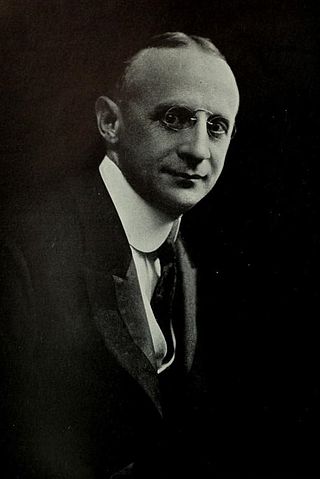
Simon Flexner was a physician, scientist, administrator, and professor of experimental pathology at the University of Pennsylvania (1899–1903). He served as the first director of the Rockefeller Institute for Medical Research (1901–1935) and a trustee of the Rockefeller Foundation. He was also a friend and adviser to John D. Rockefeller Jr.
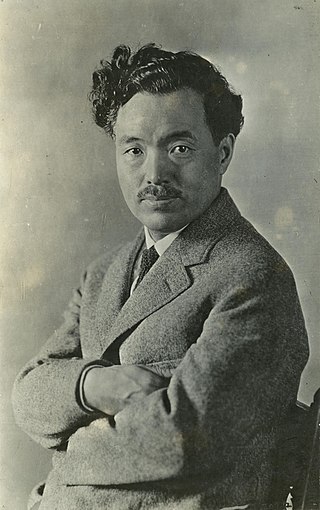
Hideyo Noguchi, also known as Seisaku Noguchi, was a prominent Japanese bacteriologist who in 1911 discovered the agent of syphilis as the cause of progressive paralytic disease.

Max Theiler was a South African-American virologist and physician. He was awarded the Nobel Prize in Physiology or Medicine in 1951 for developing a vaccine against yellow fever in 1937, becoming the first African-born Nobel laureate.

The University of Ghana is a public university located in Accra, Ghana. It is the oldest public university in Ghana.
Joseph Hanson Kwabena Nketia was a Ghanaian ethnomusicologist and composer. Considered Africa's premier musicologist, during his lifetime, he was called a "living legend" and "easily the most published and best known authority on African music and aesthetics in the world", with more than 200 publications and 80 musical compositions to his credit.
The Hideyo Noguchi Africa Prize honors men and women "with outstanding achievements in the fields of medical research and medical services to combat infectious and other diseases in Africa, thus contributing to the health and welfare of the African people and of all humankind." The prize, officially named "The Prize in Recognition of Outstanding Achievements in the Fields of Medical Research and Medical Services in Africa Awarded in Memory of Dr. Hideyo Noguchi," is managed by Japan International Cooperation Agency (JICA).
Sir Brian Mellor Greenwood, CBE, FRCP, FRS is a British physician, biomedical research scientist, academic, and recipient of the first Hideyo Noguchi Africa Prize.
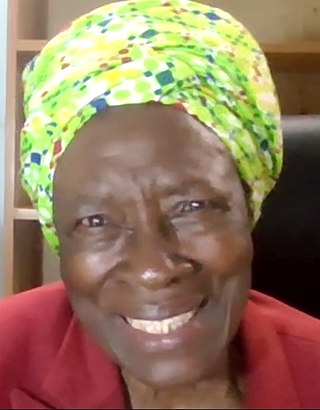
Miriam Khamadi Were is a Kenyan public health advocate, academic, and recipient of the first Hideyo Noguchi Africa Prize. In 2022, she has been nominated for the Nobel Peace Prize for her work in public health.

In precolonial Ghana, infectious diseases were the main cause of morbidity and mortality. The modern history of health in Ghana was heavily influenced by international actors such as Christian missionaries, European colonists, the World Bank, and the International Monetary Fund. In addition, the democratic shift in Ghana spurred healthcare reforms in an attempt to address the presence of infectious and noncommunicable diseases eventually resulting in the formation of the National Health insurance Scheme in place today.
David Ofori-Adjei is a Ghanaian physician, medical researcher, academic and medical journal editor. His main areas of research are clinical pharmacology, pharmacogenetics, infectious diseases such as malaria, schistosomiasis, Buruli ulcer, and HIV/AIDS and public sector pharmaceutical management. He is currently the Editor-in-Chief of the Ghana Medical Journal.

William Alexander Young MB, CHB, DPH, DTM was a Scottish doctor and surgeon who specialised in tropical medicine. He spent most of his career in West Africa, as a pathologist and bacteriologist with the West African Medical Service, where he studied many of the endemic diseases. The majority of his research was carried out in Nigeria and later at Accra, Gold Coast. He is remembered particularly as having done much to further the understanding of the nature and epidemiology of yellow fever. He died aged 38 of yellow fever, during the course of his research.
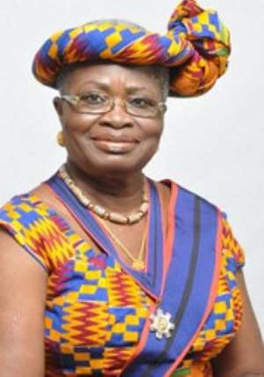
Marian Ewurama Addy was a Ghanaian biochemist and the first Host of the National Science and Maths Quiz. The first Ghanaian woman to attain the rank of full professor of natural science, Addy became a role model for school girls and budding female scientists on the limitless opportunities in science, technology, engineering and mathematics (STEM) disciplines. Marian Addy was also a Fellow of the Ghana Academy of Arts and Sciences, elected in 1999. In the same year, she was awarded the UNESCO Kalinga Prize for the Popularization of Science.

Israel Jacob Kligler was a microbiologist. A Zionist and humanist, he was born in the Austro-Hungarian Empire, educated in the United States and spent most of his career in Mandatory Palestine, but died before the creation of the State of Israel. He was one of the first four professors of the Hebrew University and the founder of Department of Hygiene and Bacteriology of the university, which he headed until his death in 1944. Kligler was one of the pioneers of modern medical research in Mandatory Palestine, studying as varied a field as Bacteriology, Parasitology, Virology, Nutrition, Epidemiology and Public Health. He developed the Kligler Iron Agar medium for the isolation and identification of intestinal bacteria, which is still in use today.

Gordon Akanzuwine Awandare is a Ghanaian parasitologist and the Pro-Vice Chancellor in charge of Academic and Student Affairs at the University of Ghana. Prior to his appointment in January 2022, He was the founding Director of the West African Center for Cell Biology of Infectious Pathogens (WACCBIP). He is the current chairman of the CKT-UTAS governing council and the Africa Global Editor of the Experimental Biology and Medicine (EBM) journal.
Cornelius Odarquaye Quarcoopome, was a Ghanaian physician and academic. He was an ophthalmologist and professor at the University of Ghana Medical School. He and others have been described as pioneers of the medical profession in Ghana.
Afua Adwo Jectey Hesse,, is a Ghanaian surgeon and the first Ghanaian-trained female doctor to become a paediatric surgeon. In August 2010, she became the first Ghanaian and second African to be elected President of the Medical Women's International Association (MWIA).

The COVID-19 pandemic in Ghana was a part of the worldwide pandemic of coronavirus disease 2019 caused by severe acute respiratory syndrome coronavirus 2. The first two cases in Ghana were confirmed on 12 March 2020, when two infected people came to Ghana, one from Norway and the other from Turkey.
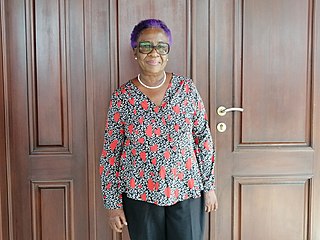
Veronica Ayele Bekoe is a biologist from Ghana. She is known for her impact in the invention of the Veronica bucket used to reduce the spread of communicable diseases.

The Government of Ghana initially responded to the virus through a nationwide disinfection and fumigation exercise which began in April 2020. In order to curb the spread of the virus, the government enforced lockdowns, aggressive contact tracing, public bans and social measures such as encouraging the wearing of face masks. By April, it began the gradual reopening of the country; lifting all lockdowns while maintaining protocols such as social distancing. Throughout the pandemic, the government partnered with the private sector in order to roll out economic reliefs and recovery programs as a result of the impact of the pandemic on Ghana's economy. There was also an expansion of medical facilities and the improvement of testing logistics.

Ama de-Graft Aikins is a British-Ghanaian Social Psychologist who is currently a British Academy Global Professor at University College London's Institute of Advanced Studies. Her research focuses primarily on the psychosocial and structural drivers of Africa's chronic non-communicable disease burden, but she also has interests in arts and health, and the history of psychology in Africa and its intersections with critical theory and African Studies. She has held teaching and research positions at the University of Cambridge, London School of Economics and Political Science and the University of Ghana. In 2015, she became the first female full professor of psychology at the University of Ghana, where she has a tenured position.















